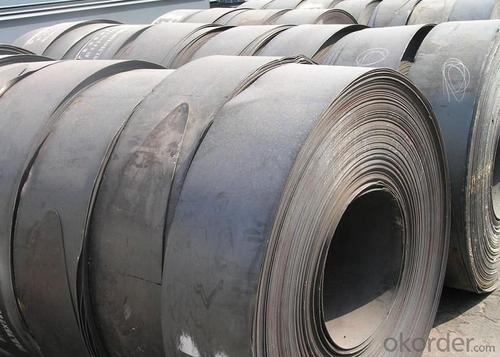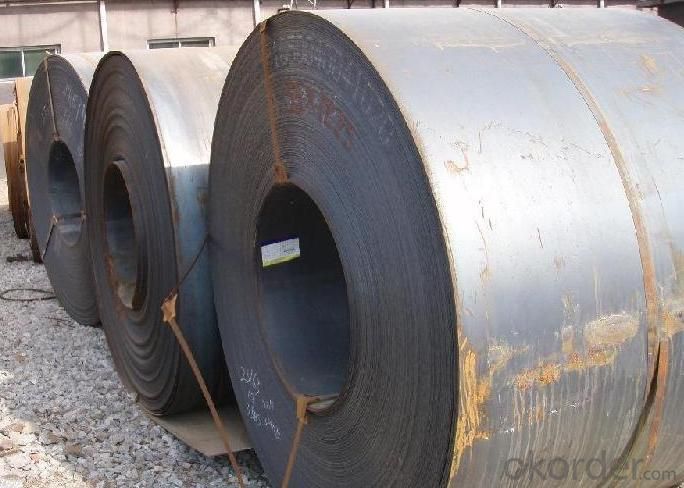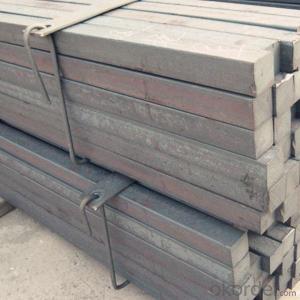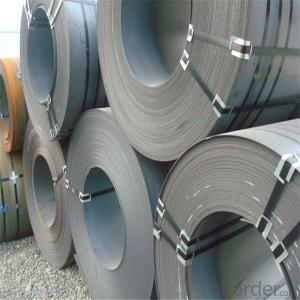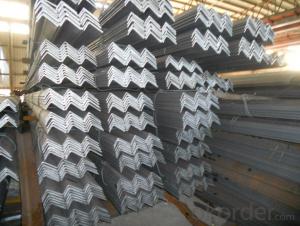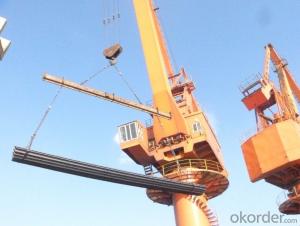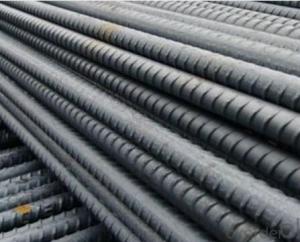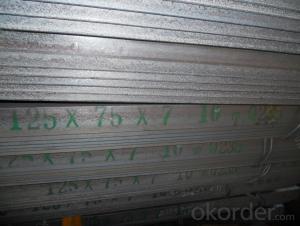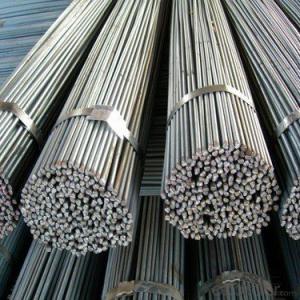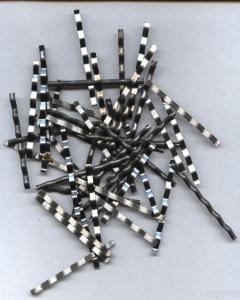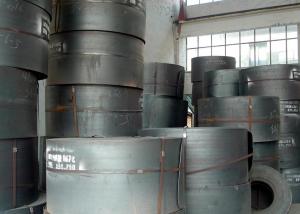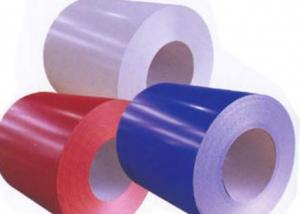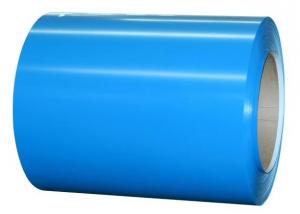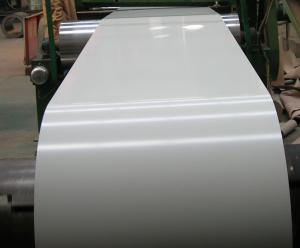Different Size of Hot Rolled Steel ASTM
- Loading Port:
- China Main Port
- Payment Terms:
- TT or L/C
- Min Order Qty:
- 50 tons m.t.
- Supply Capability:
- 50000 Metric Tons Per Month m.t./month
OKorder Service Pledge
OKorder Financial Service
You Might Also Like
Specification Of Different Size of Hot Rolled Steel ASTM
|
|
Thickness |
Width |
Length |
Coil Inside Diameter |
|
HOT ROLLED STEEL COIL |
1.50~25.0mm |
600~2000mm |
|
762mm |
|
HOT ROLLED STEEL STRIP |
1.50~20.0mm |
30~720mm |
|
762mm |
|
HOT ROLLED STEEL PLATE |
6.00~700mm |
500~4500mm |
4000~18000mm |
|
|
HOT ROLLED STEEL SHEET |
1.20~25.0mm |
50~2000mm |
0~18000mm |
|
|
HOT ROLLED STEEL CHEQUERED |
1.40~10.0mm |
900~1500mm |
0~18000mm |
|
Standard &Grade Of Different Size of Hot Rolled Steel ASTM
|
|
JIS |
ASTM |
SAE |
EN |
|
Commercial Quality |
G3131 SPHC |
A569 A635 A659 A1011 CS Type A, B, C |
1006~1025 |
10111 DD11 |
|
Drawing Quality |
G3131 SPHD |
|
1006~1010 |
10111 DD12 |
|
Deep Drawing Quality |
G3131 SPHE |
A622 A1011 DS Type A, B |
1006~1010 |
10111 DD13 DD14 |
|
General Structure (T.S.<490N/mm2) |
G3101 SS330 SS400 G3106 SM400A G3132 SPHT1 SPHT2 SPHT3 |
A36 A283 GR.C A570 GR.30~40 A1001 SS GR.30~40 |
1010~1025 |
|
|
General Structure (T.S.≥490N/mm2) |
G3101 SS490 G3106 SM490A SM490YA G3132 SPH4 |
A570 GR.45~50 A607 GR.45~70 A1011 SS GR.45,50 A1011 HSLAS GR.45~70 |
J1392 050X |
|
Definition Of Different Size of Hot Rolled Steel ASTM
Rolled to its final dimensions while it’s hot enough to scale, our hot-rolled steel is an amalgamation of the various qualities of steel. It can be in the form of plates, sheets and coils. Our Hot-Rolled Steel Sheets and Coils are applied to a wide range of uses such as automobile, electrical appliance, machinery manufacturing, container manufacturing, shipbuilding, bridge, pipeline, and receive high acclaim from our customers for its excellent quality.
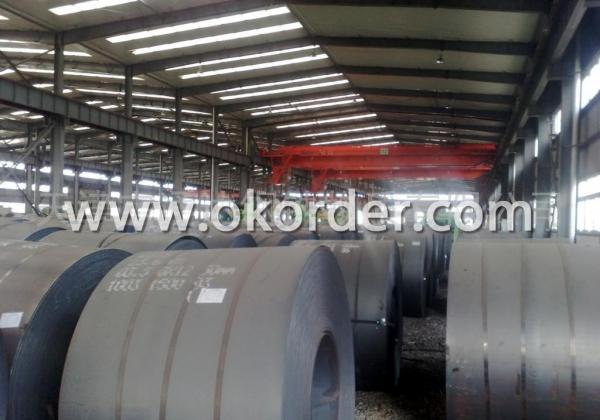
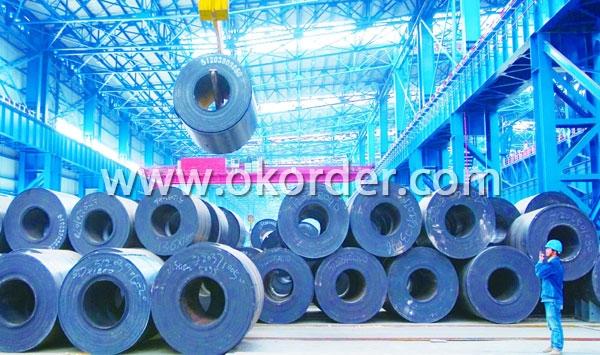
Usage/Application Of Different Size of Hot Rolled Steel ASTM
As raw material for:
Container &Pipe Production
Carbon Structural Steel
Low Alloy Steel
High Quality Carbon Structural Steel
Atmospheric Corrosion Resistant Steel
Low Carbon Steel (Commercial Quality, Drawing Quality, Deep Drawing Quality)
Packaging & Delivery Of Different Size of Hot Rolled Steel ASTM
The packing of coils consists of anti-damp paper, PVC film, hardboard paper, steel box, strapped with steel strips, fitted with locks and edge protectors and guarantees the optimal condition of the delivered goods. Each coil can be additionally fitted with wooden/steel skids(eye to the side) or wooden pallets(eye to the sky).
Bulk shipment packed with steel belt.
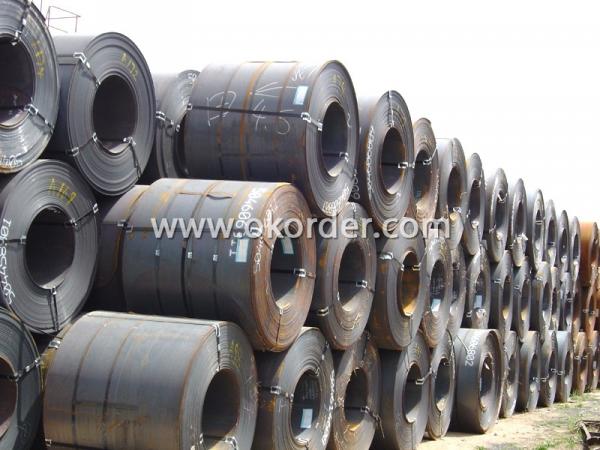
- Q: How is steel used in the manufacturing of agricultural machinery?
- Steel is commonly used in the manufacturing of agricultural machinery due to its strength and durability. It provides the necessary structural support and can withstand the harsh conditions often encountered in agricultural settings. Steel components, such as frames, blades, and gears, are utilized in various types of equipment, including tractors, combines, plows, and harvesters, to ensure their reliability and longevity.
- Q: What are the properties of high-strength steel for structural applications?
- High-strength steel for structural applications possesses properties such as exceptional strength, excellent toughness, and superior corrosion resistance. It can withstand heavy loads and external forces while maintaining its structural integrity. Additionally, high-strength steel exhibits a higher yield strength and ultimate tensile strength compared to regular steel, allowing for the creation of lighter and more efficient structures.
- Q: How are steel products used in the construction of museums and cultural centers?
- Steel products are commonly used in the construction of museums and cultural centers due to their strength, durability, and versatility. They are used for structural components such as beams, columns, and frames, providing support and stability to the building. Steel is also used for roofing and cladding systems, ensuring weather resistance and protection. Additionally, steel is utilized in the creation of doors, windows, and other architectural elements, allowing for aesthetically pleasing designs while maintaining durability. Overall, steel products play a crucial role in constructing museums and cultural centers, enabling the safe and long-lasting preservation of valuable artifacts and exhibits.
- Q: How is steel used in the production of electrical appliances and wiring?
- Steel is commonly used in the production of electrical appliances and wiring as it provides a strong and durable framework for various components. It is often used in the construction of appliance casings, motor housings, and brackets, ensuring the safety and protection of internal electrical components. Additionally, steel is used in electrical wiring as a support structure, providing strength and stability to carry and distribute electricity effectively.
- Q: What are the main properties of steel?
- The main properties of steel include high strength, durability, and excellent tensile and compressive strength. Steel also has a high melting point, good thermal conductivity, and is resistant to corrosion and rusting. It is a versatile material that can be easily formed and shaped, making it suitable for a wide range of applications in industries such as construction, automotive, and manufacturing.
- Q: How is steel used in the manufacturing of transportation equipment?
- Steel is commonly used in the manufacturing of transportation equipment due to its strength, durability, and ability to withstand high levels of stress. It is utilized in various components such as frames, bodies, engine parts, and suspension systems, contributing to the overall structural integrity and safety of vehicles, ships, trains, and airplanes.
- Q: How is steel used in the production of process equipment for chemical plants?
- Steel is commonly used in the production of process equipment for chemical plants due to its high strength, durability, and resistance to corrosion. It is used to fabricate various components such as tanks, reactors, pipes, and valves, ensuring they can withstand harsh chemical environments and high-pressure conditions. Additionally, steel can be easily welded and shaped, allowing for custom designs and efficient manufacturing processes in the production of process equipment for chemical plants.
- Q: What are the different types of steel bars and their applications?
- There are several different types of steel bars, each with its own unique properties and applications. Some common types include round bars, square bars, flat bars, and hexagonal bars. Round bars are often used in construction, engineering, and manufacturing industries for applications such as shafts, fasteners, and machinery components. Square bars are commonly used in construction, fabrication, and manufacturing projects, particularly for making structural supports and frames. Flat bars are versatile and widely used in applications such as braces, brackets, and trim work. Hexagonal bars are often utilized in machinery and equipment manufacturing. Overall, the specific type of steel bar chosen depends on the intended application and the desired characteristics necessary for that particular use.
- Q: What are the different types of steel forgings and their uses?
- There are several different types of steel forgings, including carbon steel forgings, alloy steel forgings, stainless steel forgings, and tool steel forgings. Each type of steel forging has unique properties that make it suitable for specific applications. Carbon steel forgings are commonly used in construction, machinery, and automotive industries, while alloy steel forgings are preferred for their strength and durability in aerospace and oil and gas sectors. Stainless steel forgings are highly resistant to corrosion and are widely used in food processing, medical equipment, and marine applications. Tool steel forgings are known for their high hardness and are commonly used in the manufacturing of cutting tools, dies, and molds.
- Q: How are steel products used in the manufacturing of furniture?
- Steel products are used in the manufacturing of furniture as structural components, such as frames, legs, and supports. Steel's strength and durability make it an ideal material for ensuring stability and longevity in furniture. Additionally, steel can be shaped and welded into various designs, allowing for versatile and modern furniture styles.
1. Manufacturer Overview
| Location | Hebei, China |
| Year Established | 2002 |
| Annual Output Value | |
| Main Markets | North America Eastern Asia Africa Eastern Europe Southeast Asia Western Europe |
| Company Certifications | ISO 9001;ISO 14001 |
2. Manufacturer Certificates
| a) Certification Name | |
| Range | |
| Reference | |
| Validity Period |
3. Manufacturer Capability
| a) Trade Capacity | |
| Nearest Port | Tianjin; Qingdao |
| Export Percentage | 50% |
| No.of Employees in Trade Department | 50 People |
| Language Spoken: | English; Chinese |
| b) Factory Information | |
| Factory Size: | 30000 square meters |
| No. of Production Lines | Above 10 |
| Contract Manufacturing | OEM Service Offered |
| Product Price Range | Average |
Send your message to us
Different Size of Hot Rolled Steel ASTM
- Loading Port:
- China Main Port
- Payment Terms:
- TT or L/C
- Min Order Qty:
- 50 tons m.t.
- Supply Capability:
- 50000 Metric Tons Per Month m.t./month
OKorder Service Pledge
OKorder Financial Service
Similar products
Hot products
Hot Searches
Related keywords



